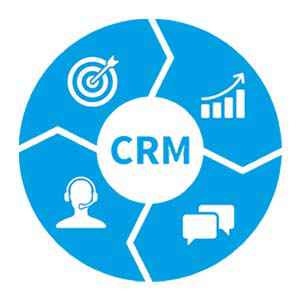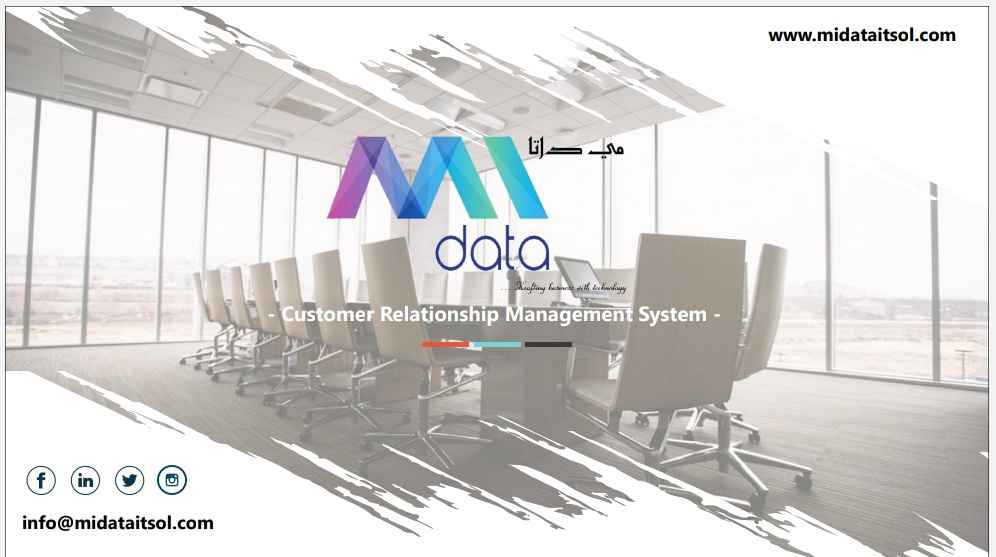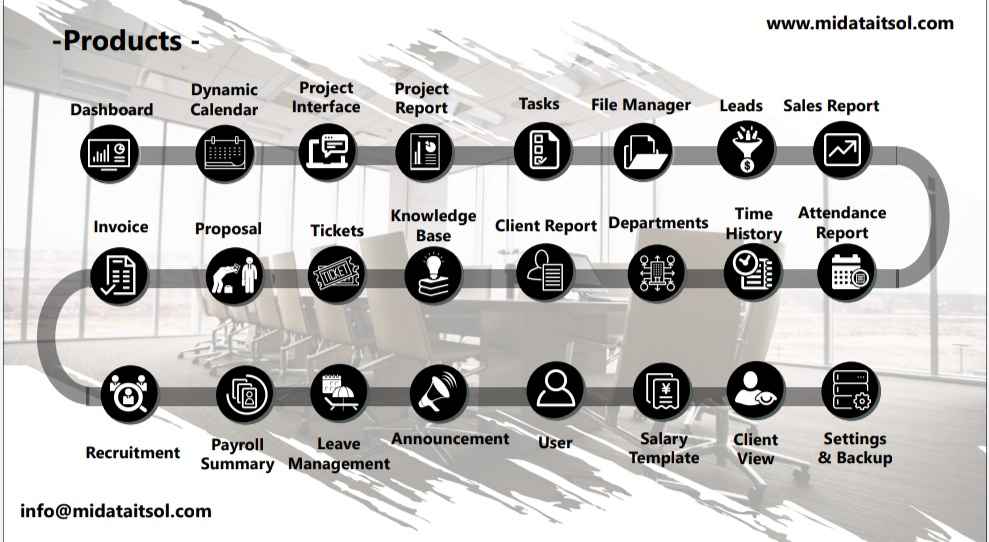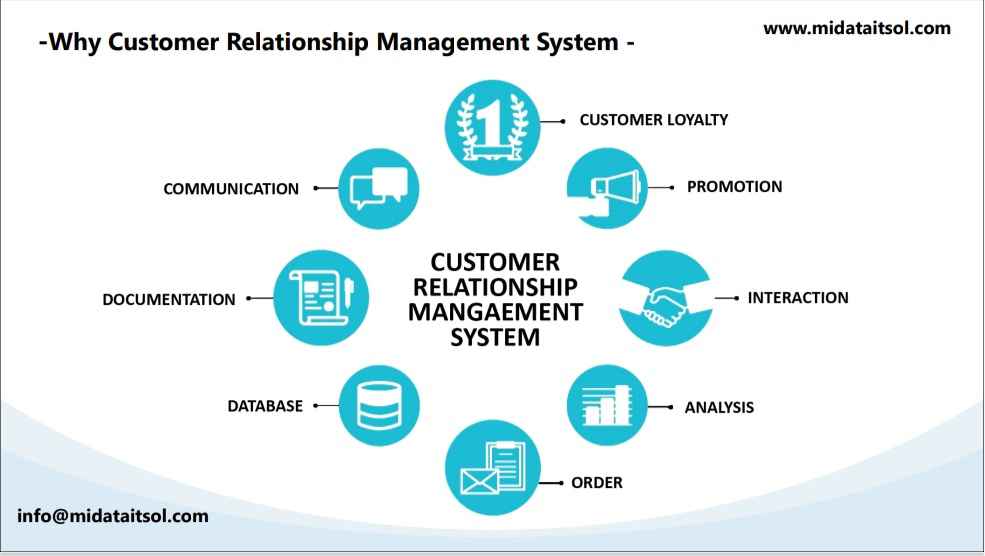CUSTOMER - RELATIONSHIP MANAGEMENT (MI-CRM)
Customer-Relationship management (CRM) is an approach to manage a company's interaction with current and potential customers. It uses data analysis about customers' history with a company to improve business relationships with customers, specifically focusing on customer retention and ultimately driving sales growth.
Product Highlights
-
Enhanced Contact Management
Every call, question, negotiation, and touchpoint from prospects and clients is recorded and accessible to the entire team with a centralised contact management system. This gives both sales, marketing, and customer service teams a boost in terms of tracking, pipe progression and client history.
-
Cross Team Collaboration
Build on the expertise of individuals — a CRM system enables people from different parts of a business to work together. A sales team can collaborate with a product team to produce bespoke quotes, while a marketing campaign that generates a lead can equip a salesperson to have a more informed, tailored conversation with the prospect
-
Increase Productivity
Cut out administrative tasks like follow-up emails and "catch up" meetings with management. With a CRM, follow-up emails can be auto-generated and tested for effectiveness, management can easily access the most recent details of a customer meeting, and customer service administrators can learn the background of a customer without leaving the call.
-
Empowered Sales Management
Empower sales managers with data to analyse customer relationships, track sales-related activity, assess deal viability, mobilise extra help when needed, and provide teams with real-time updates. Manage sales pipeline and all the individual milestones along the way, from lead generation through to closing.
-
Integrated Sales Forecasting
A single source of truth makes it much easier for sales managers to make accurate forecasts, thanks to their visibility of sales in the pipeline. Sales teams are able to learn from the past and forecast the future through historical data, while predictive analytics makes use of insights from big data to anticipate future customer behaviour.
-
Reliable Reporting
Get an at-a-glance view of its sales pipeline so it's simple to spot potential issues and nip them in the bud. As well as making data digestible, reports improve team productivity by saving on time that would once have been spent pulling data manually or laboriously creating pivot tables in spreadsheets.
-
Improved Sales Metrics
Having an easily accessible view of a customer’s interactions to date makes it easier to anticipate issues and deal with complaints. This creates a more positive experience for customers who no longer have to endure the frustrations of being bounced around between departments and channels, and having to re-explain their problem each time.
-
Better Marketing ROI
Effective tracking helps businesses to understand what marketing activities and campaigns are effective with their client base. Campaign tracking provides actionable insights into what type of marketing works for which type of customer, making it easier for marketers to maximize their budgets and deliver greater RO
-
Enhanced Products & Services
A good CRM system will gather information from a huge variety of sources across a business and beyond. This gives unprecedented insight into how customers feel and what they are saying about an organization — so businesses can improve what they offer, spot problems early, and identify gaps.




